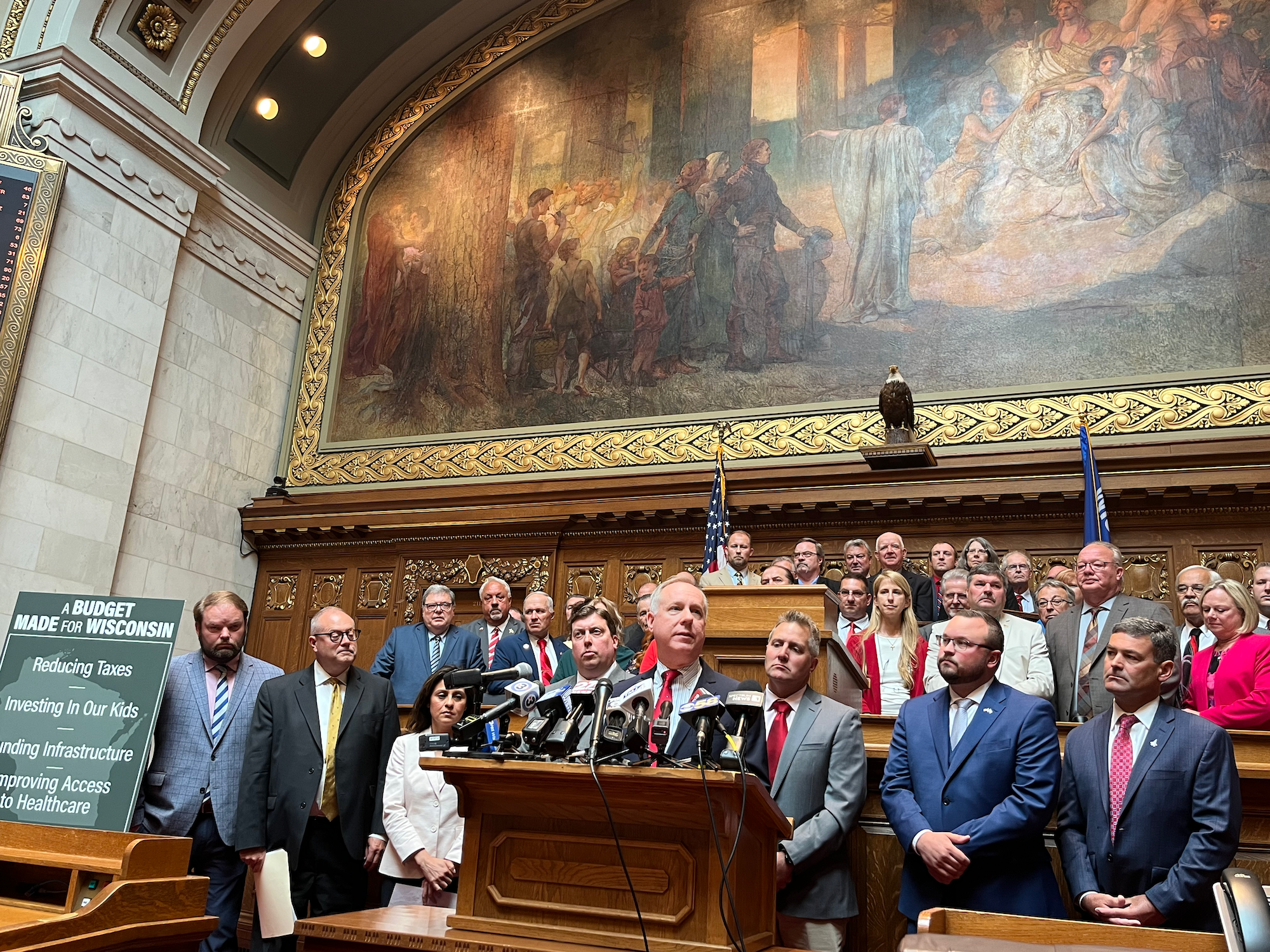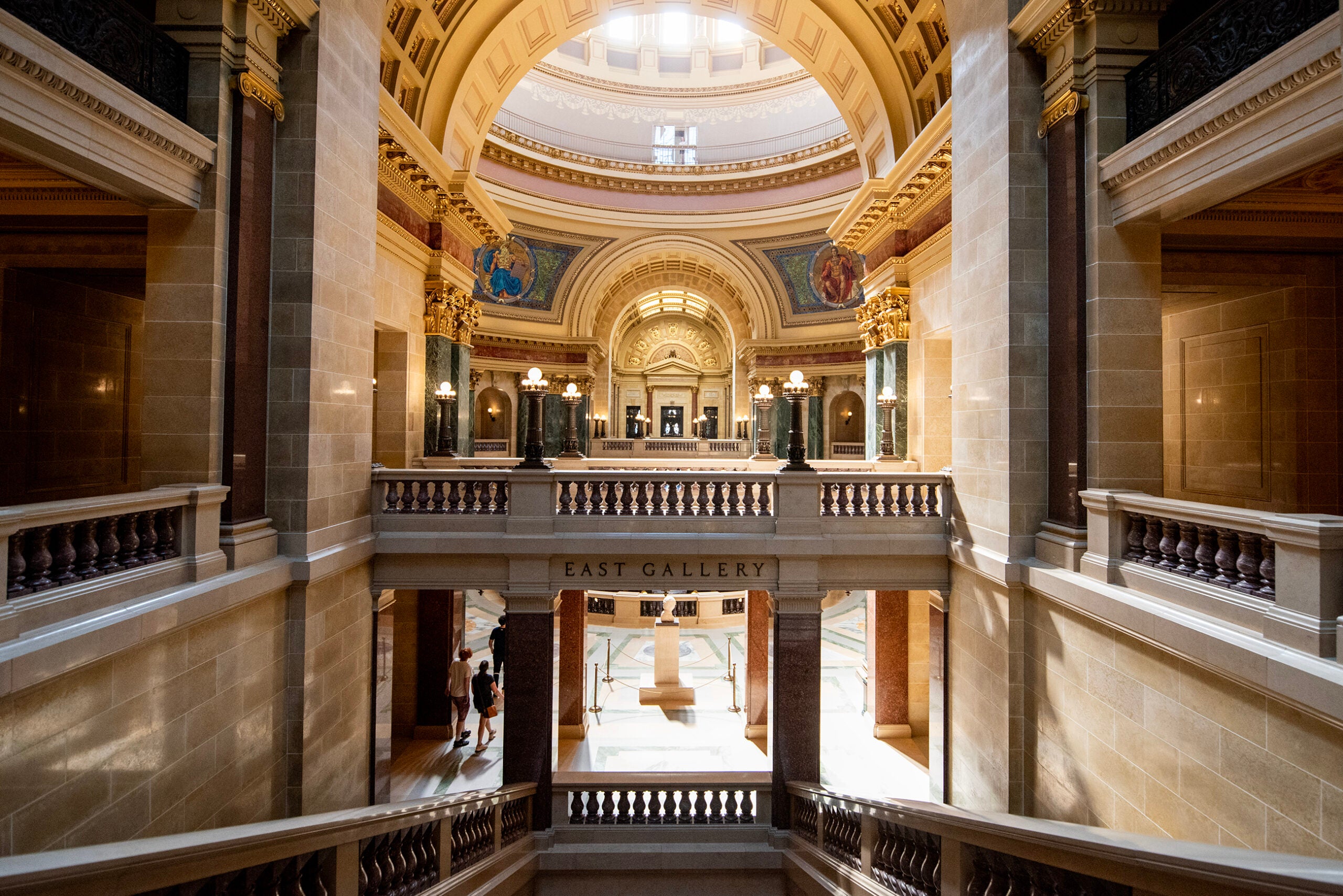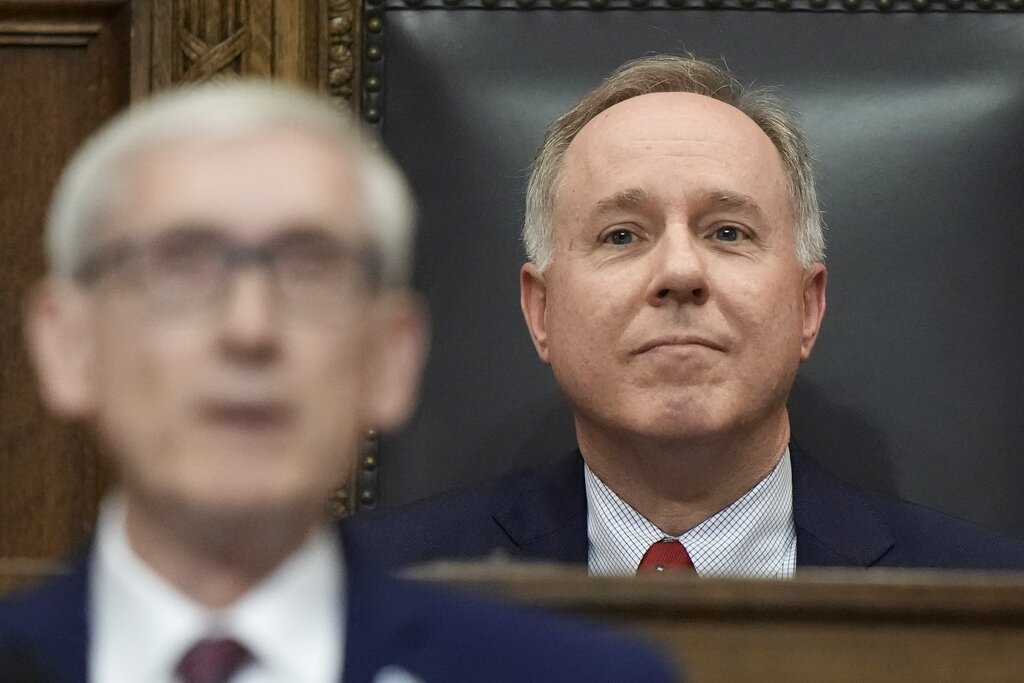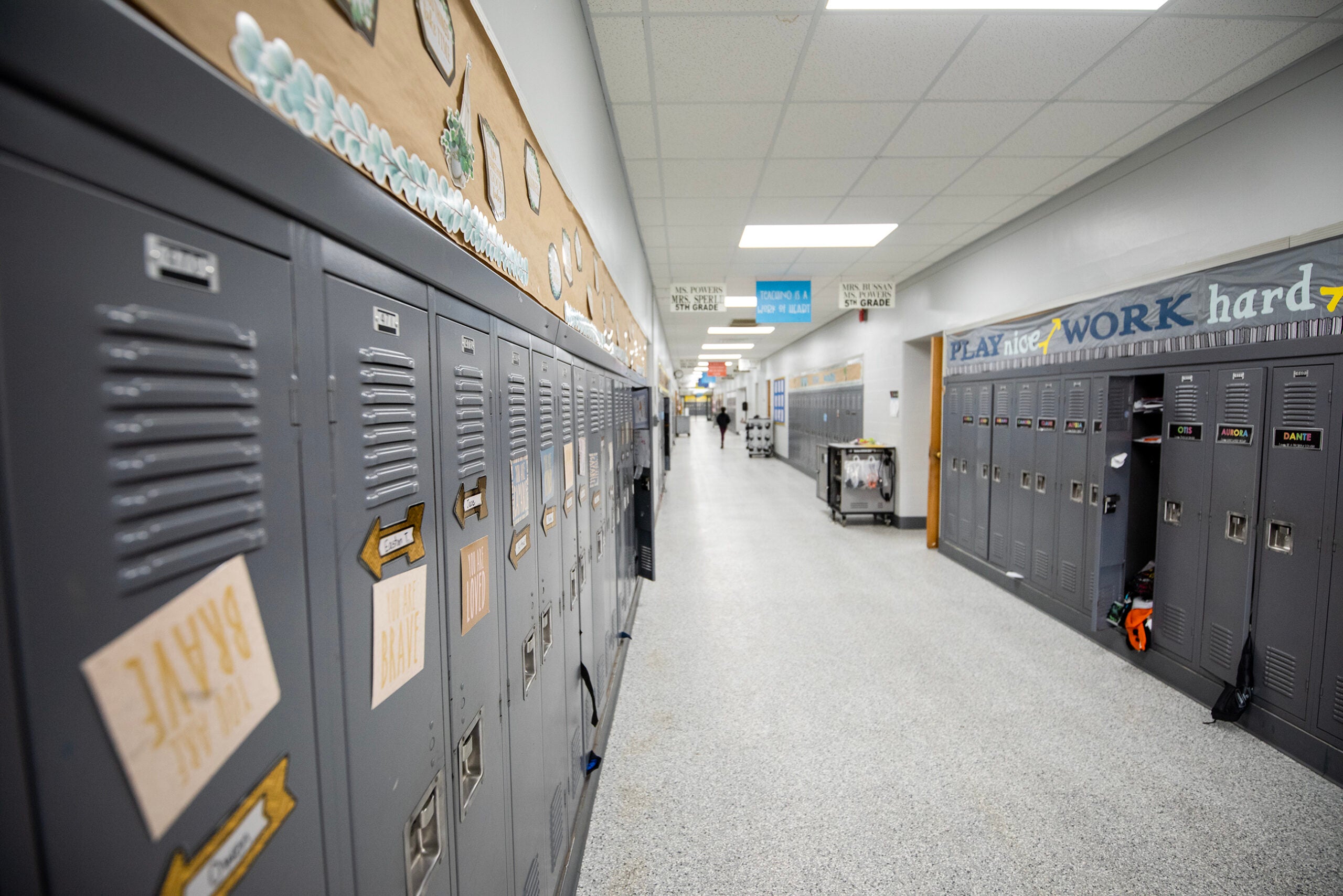Republicans in the Wisconsin Assembly on Thursday passed their version of the next two-year state budget, which includes a massive income tax cut covering all taxpayers, including the state’s wealthiest residents.
The measure passed on a 63-34 party line vote, after hours of impassioned debate that largely focused on the $3.5 billion income tax cut and a measure to defund programming related to diversity, equity and inclusion, or DEI, on University of Wisconsin campuses.
It now heads to the desk of Democratic Gov. Tony Evers, who can sign it, veto it, or use his powerful partial veto pen to change the plan, as he did in his first term.
News with a little more humanity
WPR’s “Wisconsin Today” newsletter keeps you connected to the state you love without feeling overwhelmed. No paywall. No agenda. No corporate filter.
Republicans framed the proposal as a “historic” investment in their priorities, and said the tax cut fulfilled a promise to voters about returning money to them.
Assembly Speaker Robin Vos, R-Rochester, said the tax cut would attract business to the state and make Wisconsin competitive among its neighbors.
“The goal is to try to keep successful people in Wisconsin, no matter what their income is,” Vos said shortly before debate began. “And one of the things that’s always frustrated me is when people choose to retire, they take their success and they move to another state.”
Democrats argued that the tax cut squanders the state’s estimated $7 billion surplus, which they said could have been spent on priorities like child care, transportation and youth mental health services.
Republicans rejected 13 amendments proposed by Democrats, including some that would have directed $340 million to the Child Care Counts program, restored funding for Wisconsin’s Office of School Safety, expanded Medicaid, established a paid family leave program and overturned the state’s ban on abortion.
“Bottom line, we had a chance today to use this budget to use this historic surplus to invest in people in Wisconsin, give them the tools they need to be successful and thrive, fund our education systems, fund housing, fund transportation and fund child care,” state Rep. Kalan Haywood, D-Milwaukee, told reporters. “And Republicans decided not to do that.”
The budget now headed to Evers would spend about $99 billion over the next two years when counting all funding, both state and federal. Evers’ budget would have spent about $105 billion by that same measure.
The GOP budget would still increase all spending by nearly 12 percent, including a 10 percent increase in the state’s general fund.
The plan includes raises for state and university workers, and a higher starting pay for corrections officers at a time when Wisconsin’s jails are on a path to overcrowding. Assistant district attorneys and public defenders would also see higher pay, which supporters say will help attract and retain staff, and deal with a backlog in the state’s court system.
The GOP budget would also create a $125 million fund to mitigate PFAS pollution and spend roughly $2.4 billion on Wisconsin’s capital budget for building projects.
It also included $1 billion between state and local funding for public education, which was negotiated between Evers and Republicans weeks ago as part of a sweeping deal on local government funding.
Republicans replaced a tax cut proposed by Evers in his budget that would have focused on people who earn up to $100,000 and couples who earn up to $150,000. The Republican plan would cut taxes across all income brackets, including for Wisconsin’s millionaires.
Vos described this as a step toward rescinding the state’s progressive income tax — in which those who earn more pay more in taxes — and replacing it with a flat tax, in which everyone pays the same rate.
Under the GOP plan that passed Thursday, the largest percentage drop would go to people who earn between $250,000 and $300,000 per year. The 11 Wisconsin taxpayers who earn $75 million per year or more would receive an average cut of $1.8 million per year.
For Wisconsin’s median household income, which is about $67,000, income taxes would be cut by about $250.
Evers would be able to veto some or all of that proposal. State Rep. Mark Born, R-Beaver Dam, who co-chairs the powerful finance committee that built the budget, said Republicans will “find a way to cut taxes” even if Evers vetoes this tax cut.
Some of the night’s most heated debate centered around a measure to cut $32 million from the UW system and eliminate nearly 190 jobs related to DEI.
Republicans argued that these positions promote division, and that the university system should reflect a “color-blind” approach. The proposal includes a way for UW to get that money back if the Republican-controlled budget committee decides the university has met benchmarks for workforce development.
“What our constituents across the state want is to know that a degree from a UW campus is meaningful, and not just based on how our students conform to looking through a lens of a single ideology and viewpoint for the world,” said state Rep. Alex Dallman, R-Green Lake.
Democrats said that these programs support people who are underrepresented on UW campuses, such as students of color, LGBTQ+ students and veterans. They argued that cutting funding from state universities will contribute to “brain drain” in the state.
Republicans said their proposal included several initiatives to counteract Wisconsin’s declining workforce. That includes nearly $10 million for technical colleges, $525 million for workforce housing development, and $93 million for child care programs, including subsidies for low income families and a $15 million loan program for providers to launch new child care businesses.
An identical budget passed out of the state Senate on Wednesday night.
A spokesperson for Evers did not respond to a request for comment Thursday.
Wisconsin Public Radio, © Copyright 2026, Board of Regents of the University of Wisconsin System and Wisconsin Educational Communications Board.







